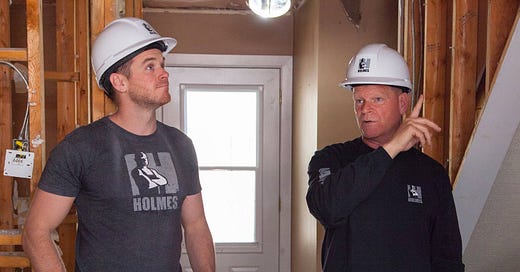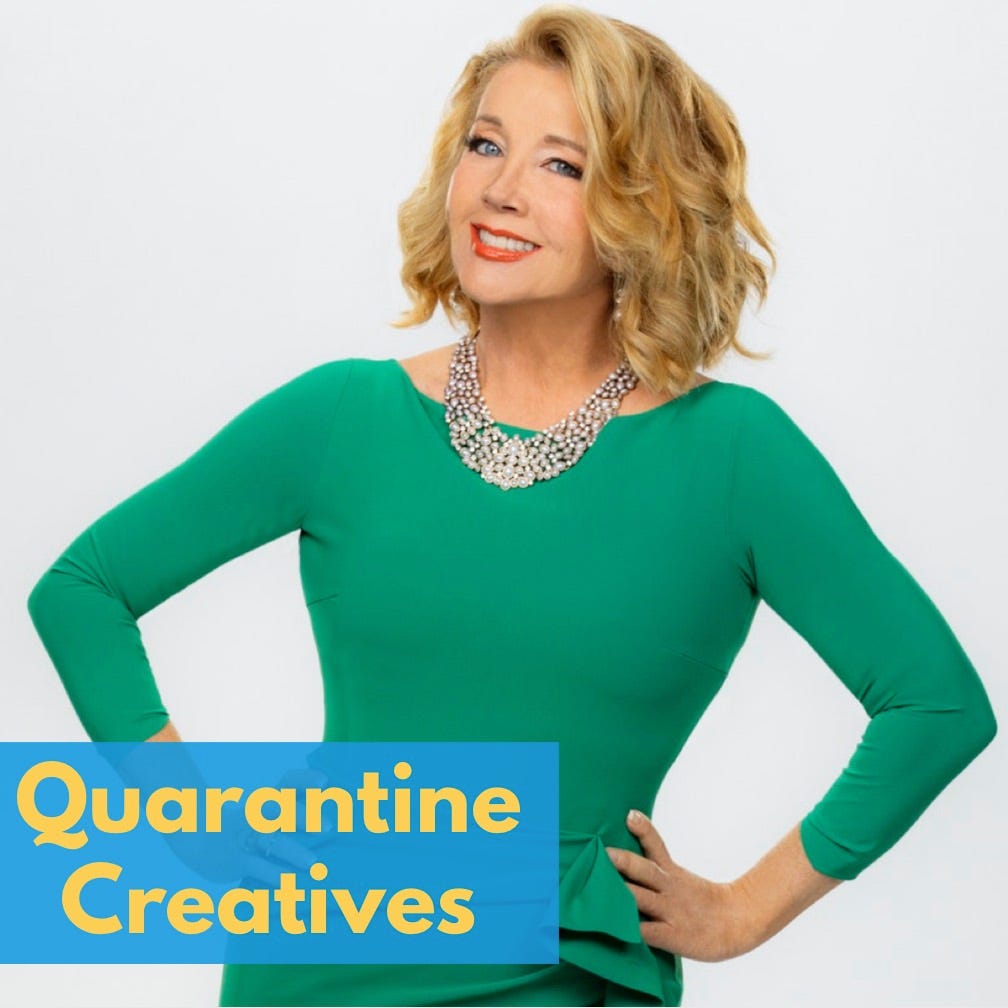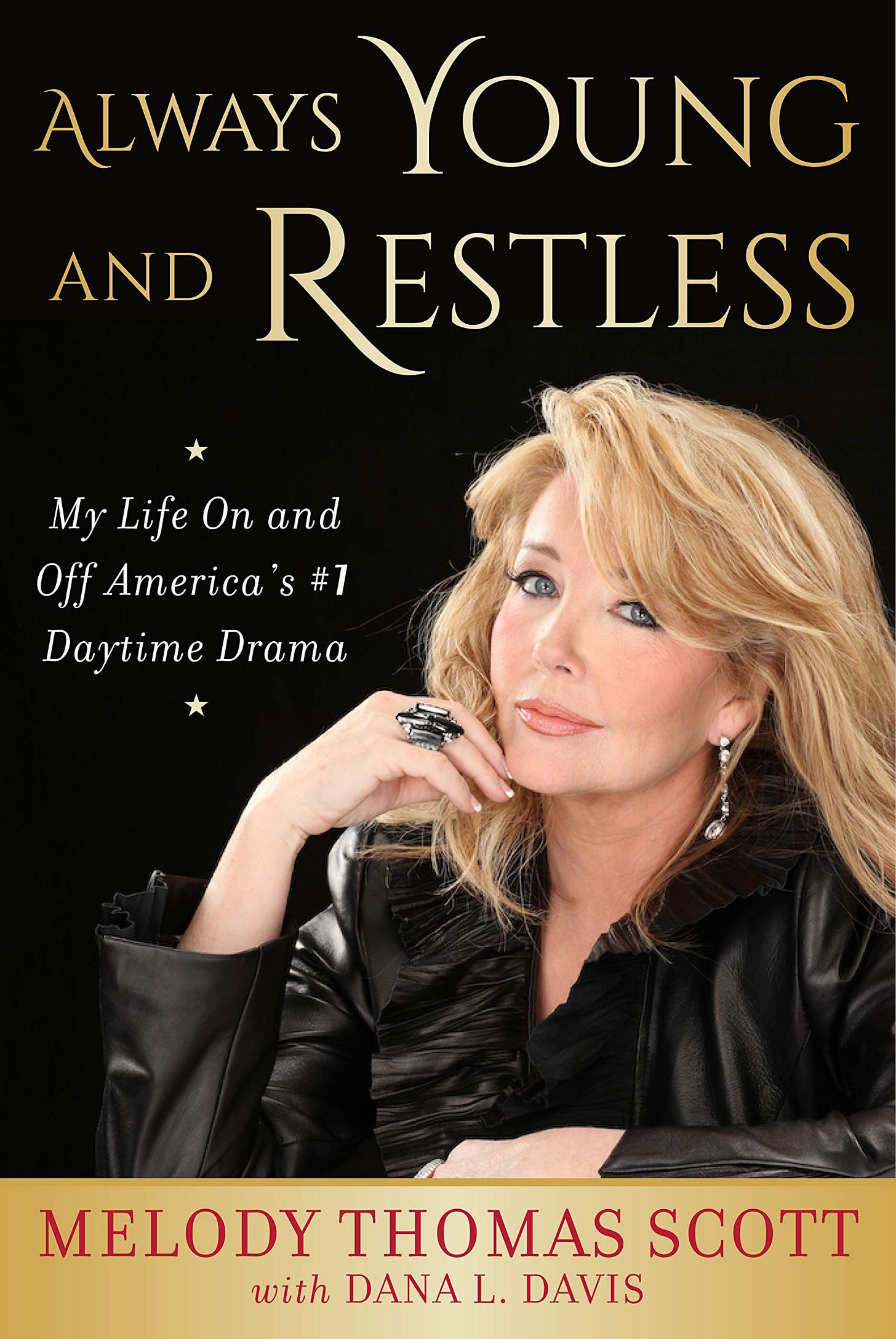Welcome to the Quarantine Creatives newsletter, a companion to my podcast of the same name. I hope you enjoy receiving this newsletter in your inbox every week and that you’ll consider sharing it with friends or family that you think might also enjoy it.
A Very Long Tunnel
Both interviews last week were more on the light side and were really fun, but before getting to them, I think it’s important to strike a more serious tone for a moment. While recent news about COVID vaccines feel like a light at the end of this tunnel, new cases of COVID-19 keep reaching higher peaks daily. We are now experiencing roughly the same death toll every single day as we experienced on September 11, 2001. Yet, it seems like the mass mobilization efforts that happened this past spring, with businesses closing their doors, governors encouraging people to stay home, and Congress acting to provide financial relief are largely absent this time around. We’re on our own.
I have been thinking a lot this past week about the role that the media plays in all of this. A missing component to this coverage seems to be the real toll that this disease is taking on those directly affected by it. We aren’t hearing enough interviews with the ICU doctors and nurses that are watching patients die on nearly every shift and that are facilitating end of life FaceTime calls with families. We don’t see cameras in hospital rooms of people hooked up to ventilators, their lungs ravaged by this disease, unable to breathe without the support of a machine. We don’t see the refrigerated trailers turned into morgues anymore, the piles of body bags, or any other indication that these statistics are human beings. Without that critical link, the numbers remain abstract, and so does the feeling of danger.
As we move into this stressful period of winter’s arrival, the holidays, and soon, the Inauguration, I hope that all of you can remain vigilant and continue practicing smart habits. Working from home, wearing masks, and avoiding socializing indoors are the small actions we can all do now to keep each other safe. I also encourage you all to seek out personal narratives from front line workers, COVID patients, and families of those that have died. Their testimony is important and deserves a bigger audience during this critical period. Here’s one tweet that I shared last week that really stood out to me:


Support Quarantine Creatives
If you enjoy reading this newsletter or listening to my podcast, please consider using my Amazon shopping link when you do some of your holiday gift giving. Amazon will work in exactly the same way as it usually does and the cost to you doesn’t change, but by clicking on this link before you shop, a portion of your sale goes to help support Quarantine Creatives. Thank you!
Episode 57- Mike Holmes
On Monday, I had a really fun chat with Canadian contractor and HGTV and DIY Network star Mike Holmes. Mike has been fixing up houses his whole life, and he has been marrying the construction world with TV production for close to 20 years now. Of course, Mike and I have a lot in common, given my long time working at This Old House. Talking with Mike reminded me of the type of conversations that I would have with the experts at TOH as we were driving around in a rental car in an unfamiliar city. He and I touched on everything from his approach to TV, the labor shortage issues in construction, and his hopes for what the home of the future might look like.
Of course, the most pressing challenge has been getting everybody back to work safely, both on the construction side and for his TV crews. After halting production in March, it took about three and a half months for work to resume, and Mike described what it feels like on set right now:
“The vibe is still good because everyone loves each other, we all know each other. We’re all very careful not to catch it, not to pass it. But I think the hindrance of having to wear the masks and having to limit the people, that has caused mainly annoyances on timing, when we know we can be so much more efficient, it’s very hard to be efficient today.”
Like the This Old House cast, Mike’s roots are firmly planted in construction. He never planned to be a TV star, but his career path changed when he met an HGTV executive and decided to share his brutally honest assessment of the network:
“I said ‘I don’t like the shows on your channel, I can tell there’s no permits. I’m surprised you haven’t been sued.’ I was more of less giving him crap and told him what type of show I thought he should have. And he jumped up and asked for a pilot right away and I laughed my head off and said ‘I’m a contractor, I’m not a TV guy.’”
One of the big challenges in any industry, whether construction or television production, is finding the right members of the team. This is especially true in the skilled trades right now, as there are estimated to be 7 million jobs in the U.S. that are unfilled because of a lack of workers. As a homeowner, you may notice that it takes longer to get an expert to your home and the work may also be priced higher.
Part of the challenge of this labor shortage is that the trades have often been seen as a less than desirable career path, and as such, are deemphasized in our educational system. Mike has been involved with World Skills for many years, and he believes in promoting a positive image for the building industry:
“We have the Olympics on television, but we don’t put World Skills on television. It’s the same thing. It’s the Olympics of trades. There needs to be a lot more push to show that the trades are a huge opportunity in this world, that you will never be out of work, that you will make good money. I don’t think we can do enough pushing this.”
The final part of the interview focused on a shared passion for both Mike and me, improving the efficiency and quality of how we build our houses. Mike mentioned that as we all spend more time at home, our indoor air quality has deteriorated. One solution is installing an energy recovery ventilator (ERV) that brings in fresh air periodically and conditions it, so that you’re not losing heat or cooling that you pay for, but most homeowners aren’t aware of the technology, and they are not offered as standard on most projects. Mike mentioned that even using portable air filters can make a big difference for health and mood.
Mike and I also discussed the importance of renewable energy, like solar panels. Both he and I have panels on our homes, and I cannot be more of an evangelist for the technology. I have had them for about 9 years now and they have made a significant dent in my monthly electric bill. Here’s a video of the self-contained (off grid) solar installation on Mike’s garage:
Mike also discussed the importance of planning for renewable energy projects in advance, especially at the community level. It reminded me of a segment that I produced in Austin, Texas a few years ago for Ask This Old House, where we visited a community that was installing geothermal infrastructure before pouring any foundations, and was also planning for solar panels on every roof:
Mike’s interview covered a lot of ground and is a really interesting listen. He’s very passionate about what he does, and it shows in the way he speaks about it.
Further Reading:
Mike mentioned his first book, Make It Right during the show, and he has also authored a number of DIY and home improvement guides.
Mike also mentioned a project that he worked on in the Lower Ninth Ward in New Orleans with the Make It Right Foundation. While it shares a similar name to Mike’s business in Canada, the foundation is a separate, unafiliated organization that built low cost, high efficiency homes after Hurricane Katrina. Mike alluded to issues with the homes, and if you’re interested in learning more, Architectural Digest has a good summary of what happened.
Episode 58- Melody Thomas Scott
On Thursday, I had a really amazing talk with Melody Thomas Scott, who has played Nikki Newman on CBS’s The Young and the Restless for 41 years. Having been in the business since age 3, Melody had some very interesting insights. She described how the pace of working on a soap opera is very different from other shows:
“We work much faster than any other production. Daytime is known for working fast. You don’t have the luxury, if you’re on a film set or a nighttime show, where maybe they’re doing 3 or 4 [script] pages a day. We do over 80 pages a day and there’s no time to waste. Of course, it’s very dialogue intensive. You need to know your lines. There’s not a lot of time to do any retakes. Really, I think a wall would have to fall down for us to reshoot something at this point. So you have to be on your toes and you have to be ready.”
Of course, since Melody has been playing the same character for decades and is shooting several days a week, she has adapted to learning her lines quickly:
“None of us really suffer over our lines until the day we get there, and then we run it together a few times and we know it. After so many years, your brain, they say is like a muscle. And I have to attest to that. The more you use it, the easier it is to remember.”
If you’re not familiar with Melody, or have been out of the loop for Nikki Newman’s highs and lows, I really enjoyed this video that was made last year when Melody celebrated her 40th anniversary with Y&R and looked back on some of her memorable moments:
Y&R has been #1 daytime drama for more than 30 years, but daytime viewership has been changing for a long time. Melody recalls the moment when she felt the world begin to shift:
“When the O.J. Simpson case broke, that just changed all of the viewers’ habits. Everybody was watching the live coverage. I think it was the very first time that a celebrity murder trial was on television. Even we were watching it, the whole world was watching. We didn’t realize that was starting a precedent of something called reality television that we wouldn’t understand for several years later. It kind of changed the landscape of what people wanted to watch. It got them less into scripted story and more into real stories. Slowly but surely, that really was the most detrimental thing in reducing the number of soaps there are on today. It really affected all of daytime programming, not just the soaps.”
Melody also discussed her new memoir, Always Young and Restless, which recounts not only her time at Y&R, but also provides a look at her harrowing childhood. She was raised by her grandmother, who had ambitions of fame and fortune and saw Melody as the vehicle to those ends. Her grandmother was abusive and also witnessed sexual assaults on Melody by industry men from an early age. Melody explained some of her experience with her grandmother:
“It was not your normal brain at work. She could go from calm to crazy screaming in a matter of seconds. So it was a very challenging personality to tiptoe around. I walked on eggshells wherever we were. I was always looking over my shoulder to see if she was approving or disapproving whatever I might be doing. And she made my childhood very, very difficult.”
While it was very hard to read about and discuss this abuse with her, Melody has moved beyond it, and it was even one of the motivators for her writing her memoir:
“I always felt that once I grow up and once I get through to the other side successfully and have overcome all these adversities, I hope to write a book so that other people who might be going through their own struggles, if they can see that I got through it, that it could give them hope. That was really my main motivation in writing it.”
Her book is a fascinating read, even if you’re not a soap opera fan. As a child actor, Melody worked with Alfred Hitchcock, Clint Eastwood, and John Wayne, among others, and her memoir is filled with interesting stories about some of these legendary Hollywood figures.
What’s Coming…
On Monday, I have a really deep conversation with journalist Maria Hinojosa. We talk about how she and her husband survived COVID-19 this spring, founding her own media company, Futuro Media, and the close up view that she’s had covering the immigration detention camps that are all over the U.S.
On Thursday, I have a fun talk with Michael James Scott. He has played Genie in Aladdin on Broadway, in the West End, the North American touring company, and Australia. He has used this time off during the pandemic to record a new holiday album, A Fierce Christmas, which is like a bright burst of Christmas sunshine during these otherwise dark days.
Thank you for reading! If you have questions, comments, thoughts, ideas, or anything else that you’d like to share, please feel free to email me anytime: hracela@mac.com
If you’re an Apple Podcasts user, please consider leaving a rating or review for Quarantine Creatives. It only takes a minute, but it helps bring in new listeners.
And please consider sharing this with a friend that you think might enjoy reading this, or better yet, share it on social media so you can tell hundreds of friends!
Stay Safe!
Heath









Love Melody Thomas Scott. Excellent actress. Truly knows her trade. Did not know of abusive history. Very sorry . Very useful for other young women suffering. Book, I will pick up.
Solar panels may think about now.